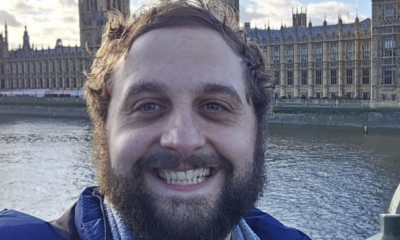
Featured Item

Nervous times: the art of dealing with trauma
“Most of us – if not all – have been born into a tapestry of ancestral trauma as the Jewish people.” Peta Cline Feigin, local life coach and trauma therapist, told the EdJEWcation 3D conference on 2 June.
Feigin said that around the globe, Jews were now experiencing complex trauma – the experience of several different traumas as well as collective trauma.
Because of this trauma, our children are asking more and more complicated questions that don’t seem to have an answer.
“When I hear those questions, like ‘Why do they hate us?’, all I can think is that our kids need to know. Our kids need to know what’s happening. We can’t lie, and we can’t just say everything,” she said.
“This tapestry [of trauma] runs deep. It has an impact on how we respond to the world. It allows us to build on our community. It allows us to identify when to rein it in and call in the troops. But a lot of the time when we’re feeling despair, we fall apart at the seams,” she said.
“It’s about understanding how we can pull together,” Feigin said. “When we’re born into a field with pre-traumatisation, that’s ancestral trauma. Knowing that we’re descendants of the Holocaust, knowing our family history, we have a different understanding of how we connect in the world.”
Feigin said our body processes trauma through our nervous system. “It witnesses whatever it is that we’ve gone through, and has a heightened experience,” she said. In response to this event, our nervous system will respond and store that particular response in the unconscious mind – which Feigin equates to a five-year-old child.
“All of our nervous systems are communicating with each other,” she said, “and the five-year-old is determining how we’re connecting as well.”
Adults need to know how to regulate their “five-year-old child” when responding to trauma.
“Our kids need to know that in establishing a connection with us, we’re regulated.”
Feigin said that when discussing largely emotional and triggering topics with children, we need to expand our vocabulary for the range of emotions we’re experiencing, and share this vocabulary with children.
“We’ve lost our words because this is such an unspeakable time,” she said.
She said she was among the broader community asked to help with some of the soldiers in Israel. She thought she had heard it all after seeing just one of them, but was quickly proven wrong.
“I was listening to one soldier telling of his experience of opening up the ovens where there were babies and scraping people off the floor who were stuck with their blood and shrapnel and losing pieces of their skin. I was trying to help him, but I wasn’t okay. It was my responsibility to make sure that my nervous system got back into check,” she said.
While on Oxford Road in Johannesburg en route to the conference, she met another driver at a traffic light who gave her a negative look and pointed to the yellow ribbon Feigin had hanging in her car. Feigin phoned her husband after the incident while driving, and he asked her how she reacted. She said that when confronted by this hatred, she just fastened the ribbon’s bow.
In the face of adversity, we must be reminded that “our identities are secure, our nervous systems aren’t”, Feigin said. “Our responsibility is to do the exercise, literally and figuratively, to calm down these central nervous systems. It’s our responsibility to make sure, whether it be through exercise, craniosacral therapy, reflexology, or trauma release exercise [TRE], that we get into our bodies to build up what we call resilience. Resilience is no longer the definition of how quickly you get back up. It’s how you restore along the way.”










